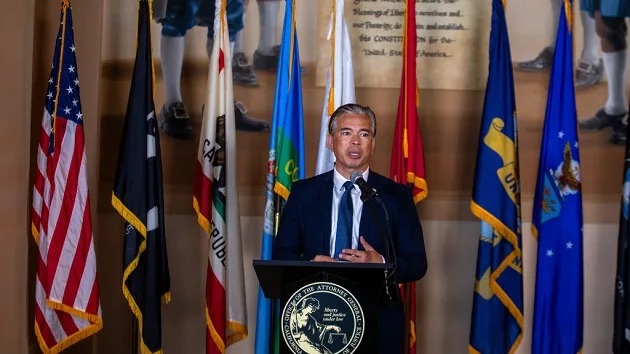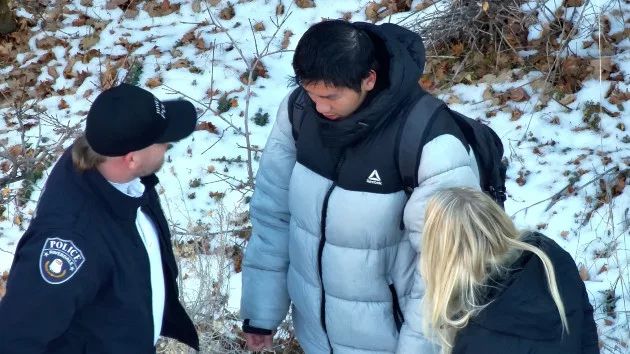
(CHINO, Calif.) — California Attorney General Rob Bonta has filed a lawsuit to try to halt a school district’s enforcement of what his office calls a “forced outing policy” involving transgender students.
The Chino Valley Unified School District Board of Education, which serves about 26,000 students, recently adopted a mandatory gender identity disclosure policy that requires schools to tell parents if a student asks to use a name or pronoun that’s different from what is listed on their birth certificate or other official records.
The policy also requires parental notification if a student asks to use facilities or enter programs that don’t align with their sex as it is on official records.
“Every student has the right to learn and thrive in a school environment that promotes safety, privacy, and inclusivity – regardless of their gender identity,” Bonta said in a Monday statement announcing the lawsuit.
He continued, “The forced outing policy wrongfully endangers the physical, mental, and emotional well-being of non-conforming students who lack an accepting environment in the classroom and at home.”
Schools with inclusive policies that protect and affirm transgender youth’s identity are “associated with positive mental health and academic outcomes,” according to research published by the Society for Research in Child Development.
Transgender youth, often due to gender-related discrimination and stigma, are more likely to experience anxiety, depressed moods and suicidal thoughts and attempts, the National Alliance on Mental Illness has found.
Transgender people make up 0.5% of the adult population in California, and 1.93% of teenagers between the ages of 13 and 17, according to research from the University of California, Los Angeles.
In California, 17% of all gender non-conforming students aged 12-17 reported that they experienced severe psychological distress, the UCLA Center for Health Policy reported.
The Chino Valley school board held public hearings on the policy throughout the summer, garnering protesters from both sides of the issue.
In one July hearing, a board member called being transgender a “mental illness.”
“There has always been man and woman, and then you have this transgender and it is not going to stop there … it is a mental illness,” board clerk and member Andrew Cruz said. He also claimed “women are being erased.”
In that same meeting, the board president, Sonja Shaw, also stated that transgender and gender nonbinary individuals needed “non-affirming” parents to “get better.”
The policy passed with a 4-1 vote, with member Donald L. Bridge as the sole vote against the policy.
“What we should be discussing is what’s in the framework and getting a staff report as we enter the new school year — that’s what I would like to be discussing and not culture wars,” said Bridge in the July hearing.
He continued, “Are we trying to outdo other districts by being one of the first to pass this policy? … What about potential lawsuits? They’re likely going to be filed, somebody will file it.”
ABC News has reached out to the Chino Valley Unified School District for comment.
In response to the lawsuit, Shaw told the Associated Press that the board “will stand our ground and protect our children with all we can because we are not breaking the law … Parents have a constitutional right in the upbringing of their children. Period.”
The attorney general slammed board members for their comments, stating that members intended to “create and harbor animosity, discrimination, and prejudice toward transgender and gender-nonconforming students” with the policy.
LGBTQ advocates say that forcibly “outing” transgender students could be dangerous for some students, who may not feel safe or supported at home or elsewhere.
The lawsuit asserts that the policy violates California’s Constitution and state anti-discrimination laws, including California’s Equal Protection Clause, California’s Education and Government Code and California’s constitutional right to privacy.
Copyright © 2023, ABC Audio. All rights reserved.





